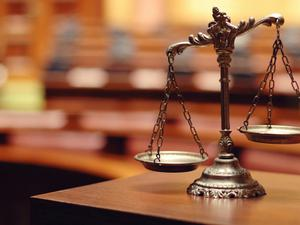This paper is the english version of: https://www.village-justice.com/articles/guide-survie-juridique-aux-comparutions-immediates-tardives,46994.html
At the height of summer, when long-haul flights are on the increase, criminal justice professionals and, above all, litigants are faced with an entirely different kind of interminable journey, in conditions that make low-cost airlines look like private jets. These are the hearings of immediate appearance, which end at hours that, by dint of being late, become early morning.
As an example, a legal information website reported on such a hearing, which started at 1:30pm and ended at 6:30am (https://www.actu-juridique.fr/justice/il-est-6h30-du-matin-laudience-est-levee/).
What can be done to challenge such procedures? While the Cour de Cassation seems to have ruled out any hope in terms of the time limits for appearing under article 395 of the Code of Criminal Procedure (1), the European Court of Human Rights has come to the defense's aid in terms of the requirements of a fair trial (2).
- According to the French Supreme Court, lengthy hearings do not contravene article 395 of the Code of Criminal Procedure.
It should be remembered that the choice of the immediate appearance procedure rests with the Public Prosecutor, who may, under article 395 of the Code of Criminal Procedure, "bring the accused before the court forthwith", if the maximum term of imprisonment provided for by law is at least six months in the case of flagrante delicto, or two years in the absence of flagrante delicto, and if "it appears to him that the charges brought are sufficient and that the case is ready for trial".
And paragraph 3 of article 395 specifies that "the accused is detained until his appearance, which must take place on the same day" (emphasis added).
In a decision dated January 12, 2021 (Cass crim, January 12, 2021, n°20-80.259, https://www.courdecassation.fr/en/decision/600fe839e5e8160929976c85, Dalloz actualité February 4, 2021 comment Hugues Diaz), the Criminal Division of the French Supreme Court ruled on the validity of the immediate appearance procedure when the accused is not tried "the same day", but after midnight.
In this case, the defendant had appeared at 0:47. The Criminal Court, whose position had been confirmed by the Court of Appeal, considered that the case had not been validly referred to it.
The high court was to overturn this ruling, considering that "the Criminal Court is irrevocably seized by the notification drawn up by the public prosecutor" but above all that :
- On the one hand, it would have "satisfied the reservation set out by the Constitutional Council in its decision of December 17, 2010 (no. 2010-80-QPC), provided that the person concerned was brought before the court before the expiry of the 20-hour period that had elapsed from the release from police custody". (recital 13).
This argument is open to criticism. The 20-hour time limit laid down in article 803-3 of the French Code of Criminal Procedure is the one within which the accused must be presented to the court for the first time. The need to present the detainee to a judge, as required by the French Constitutional Council in its decision of December 17, 2010 (https://www.conseil-constitutionnel.fr/decision/2010/201080QPC.htm), is intended, according to recital 10 of the same decision, "to make an immediate assessment of the appropriateness of (the) detention".
In practice, an appearance within the 20-hour time limit is an identity check, without any verification of the appropriateness of the detention. While the convenience of such an interruption in the time limit may be understandable, if not self-evident, to enable the organization of hearings on a day-to-day basis, it should not justify subjecting the accused to an interminable wait. What's more, it is regrettable that magistrates, the guardians of individual liberty, are willing to abuse their function by limiting verification of the appropriateness of detention to a mere formality.
- On the other hand, "the requirement to appear 'on the same day' that the person concerned is brought before the public prosecutor's office should not be interpreted as meaning that he or she must be tried before midnight, but rather that he or she must appear during the hearing in question, even if that hearing ends after midnight due to various constraints". (recital 12)
It is regrettable that jurisprudence sometimes makes the simplest words lose their meaning. The Code of Criminal Procedure expressly states that the appearance must take place on the same day. In fact, it's a tautology: an immediate appearance must be immediate.
Unfortunately, this is not the position taken by the Cour de cassation, basing its decision on article 395 of the French Code of Criminal Procedure.
As is often the case, safeguarding our civil liberties seems to be more effective under European law.
- According to the European Court of Human Rights, late hearings are incompatible with the requirements of a fair trial.
Although, as far as we know, the European Court of Human Rights has not had occasion to rule on the conventionality of immediate court hearings that go on until the end of the night, it has ruled - and condemned France - on the subject of interminable criminal hearings.
In this case, a hearing had gone on until 4am, with the defense arguing from 4.25am, at the end of three days of very intense debates.
In a judgment handed down on October 19, 2004 (Makhfi v. France, 59335/00, https://hudoc.echr.coe.int/fre?i=002-4179, Recueil Dalloz, 2005, page 472, commentary by Damien Roets), the Court unanimously held, on the basis of Article 6(3) and (1) of the Convention (i.e. the right to a fair trial and the rights of the defense), that "it is essential that not only the accused, but also their defense counsel, should be able to follow the proceedings, answer questions and plead without being excessively tired. Likewise, it is crucial that judges and jurors should be able to concentrate and pay full attention to the proceedings, so as to be able to deliver an informed judgment. The conditions under which the applicant's trial took place did not meet the requirements of a fair trial, in particular respect for the rights of the defence and equality of arms".
The same principles should lead to the outright annulment of immediate appearance hearings held too late. This late nature could be assessed in concreto. To this end, Marylise Lebranchu's circular of June 6, 2001, which set the maximum length of criminal hearings, is unlikely to be even a theoretical benchmark. From - at the very least - midnight, the defense will have every right to protest and refuse to plead.
The Cour de cassation, even though it has validated hearings continuing past midnight (cf. above), seems ready to acknowledge that late hearings are not consistent with a fair trial. Thus, with regard to the right of the Public Prosecutor to refer a case to a liberty and custody judge while awaiting the hearing, due to the impossibility of convening the Court on the same day, it expressly considers that this impossibility may be due to "the circumstance that there will not be enough time to examine the case in conditions likely to guarantee the fairness of the trial". (Cass crim, April 18 2023, n°23-80.674, https://www.courdecassation.fr/decision/64422944d2fa6fd0f8040284)
Then there's the usual pitfall of immediate appearances, namely that the Court will rule on what are euphemistically termed "conditions of referral", in other words the accused's pre-trial detention pending trial.
However, beyond the nullity of the substantive debates organized at the end of the night, the debate on detention taking place under the same conditions cannot be valid. Alas, this is unlikely to be the position of the Public Prosecutor's Office, or even of most substantive courts, and this battle will have to be fought all the way to the highest courts.
Alexandre-M. BRAUN
Attorney at Law



Pas de contribution, soyez le premier